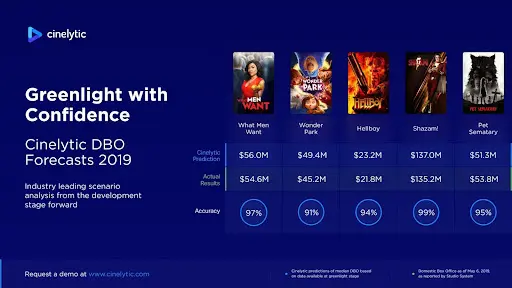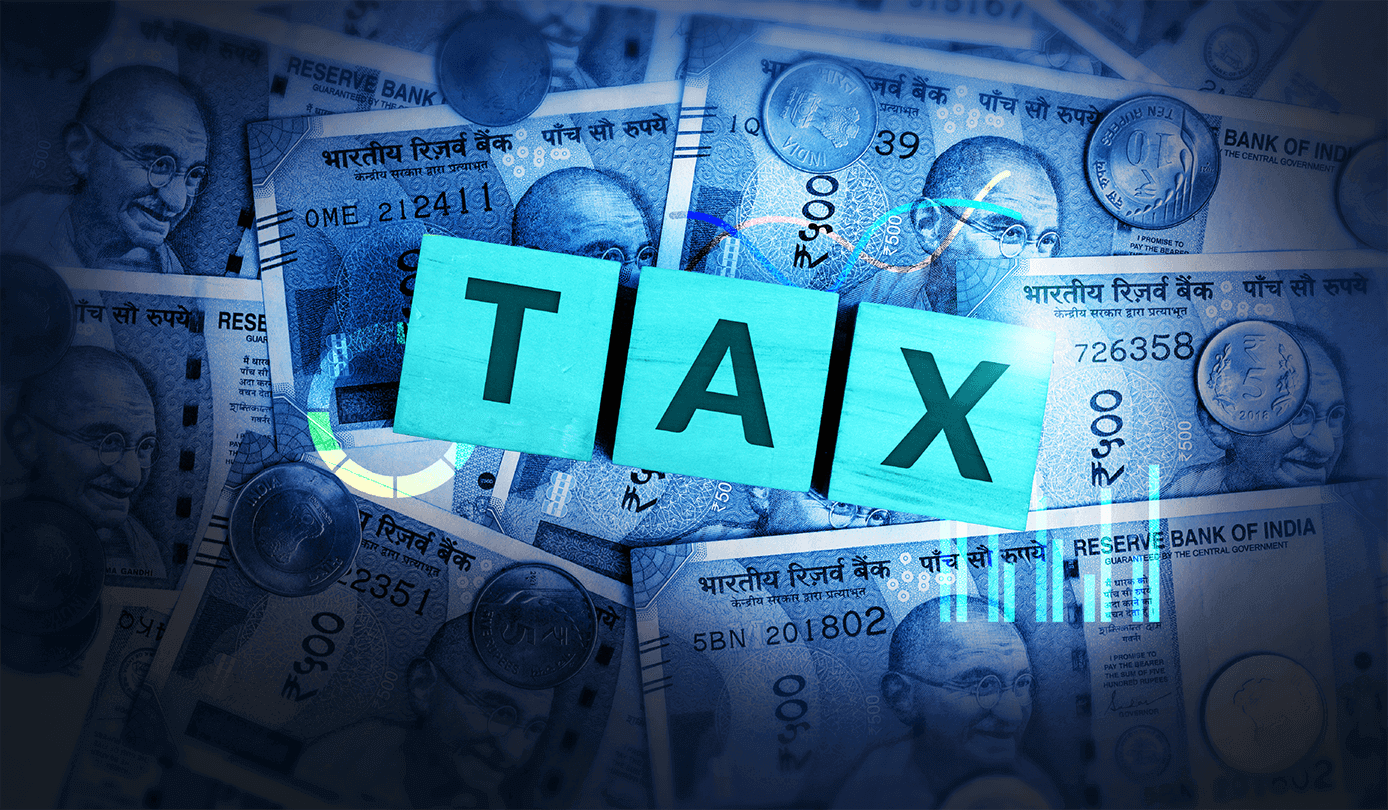With the advancements in AI and ML, data science is becoming far more effective, and industries in every vertical are adopting it. Organizations leverage data science to unearth critical business insights, from identifying customer needs to optimizing business operations. Likewise, the film industry has realized the significance of data and analytics and is actively adopting data science, proving indispensable to the industry.
Use Case #1: Predicting Future Audience
In 2018, the data science team of film production company 20th Century Fox partnered with Google’s Advanced Solutions Lab to create Merlin Video. This computer vision tool learns dense representations of movie trailers to help predict a specific trailer’s future audience. For example, Merlin analyzed the trailer of the movie Logan and predicted a list of 11 out of 20 films that the viewers of Logan would find interesting. The table below shows the top 20 actual moviegoer audience (Comp ACT) compared with the top 20 predicted audience (Comp PRED) by the Merlin model.

Let’s focus on the top 5 actual movies (highlighted in green) and see whether they also showed up in our prediction column of the top 5 movies. The top audience for Logan were a combination of two factors — superhero and rugged male action lead. This can be better seen by noting that key “rugged male action lead” predictions like The Magnificent Seven (highlighted in blue), John Wick (highlighted in green), and Terminator Genisys (highlighted in blue) were also present in the top 20 list of actual audience. This result is a win-win because the new audience “adds” to the core superhero audience and can potentially be used to extend the movie’s reach beyond the core audience.
Merlin can efficiently predict what movie genre and exactly what movies (movie titles) may interest the audience who watched and loved a particular movie trailer. Out of the actual 20 predictions Merlin made, five were blockbusters — Doctor Strange, John Wick: Chapter II, Batman v Superman: Dawn of Justice, Suicide Squad, and X-Men: Apocalypse.
Use Case #2: Identifying the Best Cast
Irrespective of the story and screenplay, casting plays a significant role in the reach and success of a movie. We would have often wondered what if actor A played the lead role in the movie instead of actor B? Would the film’s outcome have changed, and would it have impacted the box office collection differently? The recent developments in data analytics can answer these in the form of data. A cloud-based business intelligence platform, Cinelytic, uses the historical data of the actors’ movie performances and matches them with their talent scale and the genre of the film to identify if an actor would fit a specific role in a film.

Use Case #3: Analysis of the Screenplay
As audiences become more knowledgeable, filmmakers have realized the importance of the screenplay to keep the audience engaged. Employing AI/ML to analyze the quality of the screenplay can directly impact the quality of movies. ScriptBook is an AI-powered company paving the path in this sector. Once a filmmaker loads a PDF file containing the movie script into ScriptBook, the software will generate a complete report about the script and its screenplay. In addition to the report, it also:
- Predicts the MPAA rating for the movie
- Analyzes characters, categorizing protagonists and antagonists
- Assesses the emotions of each character
- Anticipates the target audience, including by gender and race, and the box office performance
Use Case #4: Assisting in Scriptwriting
The filmmaker’s observations and experiences determine the emotional content of the movies. With NLP and algorithm developments, production houses can now significantly improve the sentiment quotient of their stories and make improvements to the overall screenplay during the pre-production stages. To be precise, the AI learns from historical data, discovers the pipeline between similar scenarios, analyzes what the audience prefers, and generates a unique screenplay. This has proven to be a special tool for production houses when scriptwriters go through writer’s block. By leveraging technology, production houses can minimize both time and budget spent on the script.
Use Case #5: Personalized Movie/Show Recommendations
Streaming platforms underpin data to understand users’ preferences to curate personalized content recommendations. Not only movie streaming platforms but also video and audio streaming platforms are harnessing the power of recommendation systems. These platforms mostly use the approach of collaborative filtering, content-based filtering, or sometimes, even combine these two approaches and work on a hybrid approach. Hybrid approaches are preferred because the accuracy of recommendations derived from this approach is higher than the two methods individually. In addition, streaming giants like Netflix now depend on this hybrid approach.
Use Case #6: Enhancing the Performance of Advertisements
A study conducted by the University of Iowa revealed that the significant aspects of advertisement campaigns of movies could be analyzed by predictive analysis, which results in higher marketing success. For example, the time slot for releasing the advertisements, the period between the debut of the advertisement campaign to the film release, the concept of the ads, the mode of advertising, etc., are some aspects that would help the marketing team to come up with an optimized plan for a broader reach of the film.
Conclusion
As discussed in the previous sections, the current and potential uses of cases of data science in the film industry are enormous and will rise in the coming years. The correct data analytics tools can assist filmmakers in overcoming several challenges in scripting, casting, and movie release. As data science advances, it promises to transform the entertainment industry and deliver bang for the buck to movie fans worldwide.
References
- https://www.vice.com/en/article/7x35y9/fox-is-using-googles-machine-learning-to-predict-what-movies-youll-like
- https://www.cinelytic.com/
- https://variety.com/2018/artisans/news/artificial-intelligence-hollywood-1202865540/
- https://help.netflix.com/en/node/100639#:~:text=We%20estimate%20the%20likelihood%20that,preferences%20on%20our%20service%2C%20and
- https://arxiv.org/pdf/1506.05382v2.pdf



